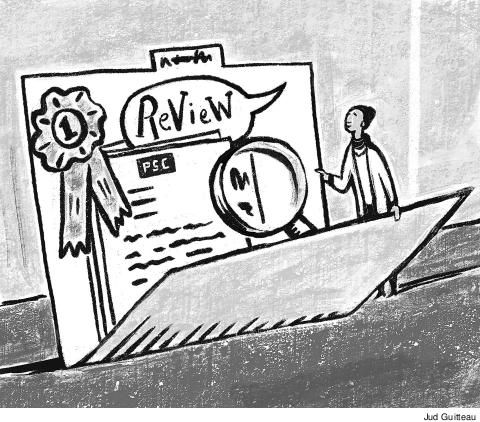Steps to take to prepare ahead of time

One of the most dramatic changes negotiated in the recent contract is the introduction of a pilot program of multiyear appointments for adjuncts who have taught consistently in a single department. The contract provision seeks to professionalize the treatment of part-time faculty and stabilize their employment, benefiting both adjuncts and students.
More than 2,200 teaching adjuncts CUNY-wide are currently on three-year appointments. The first cohort of adjuncts who received these three-year appointments (about 1,500) in Fall 2017 will be up for renewal of their three-year appointments in Fall 2020. (Over 400 eligible adjuncts voluntarily sought two-year appointments starting Fall 2016 and were considered for three-year appointments during Spring 2018; most received them.)
COMPREHENSIVE PROCESS
Consideration for reappointment to a new three-year appointment is mandatory and subject to a “comprehensive review” of performance by the adjunct’s respective department, as well as “fiscal and programmatic needs of the department and/or the college.” Consistent with contract language, an adjunct not reappointed to a three-year appointment will receive no other appointment in that department unless that other appointment is a three-year appointment.
Adjunct counselors in the union’s Contract Administration Department have been working with adjuncts on multiyear appointments for the past two and a half years and have some suggestions about how best to prepare for their departments’ “comprehensive reviews” in order to secure another three-year appointment. Leading up to the review, it is important that your personnel file contain a positive record of your accomplishments in the department.
Recommended best practices include:
1. Check your personnel file – find out what’s in it!
When the departmental Personnel & Budget (P&B) committee, charged with making personnel decisions, conducts its comprehensive review, that is the file they will examine. If you find anything that raises questions or concerns, contact an adjunct counselor at PSC.
2. Request a class observation.
Because adjuncts on three-year appointments have been working for more than 10 semesters, the department is not contractually obliged to assign a faculty member to observe your class, but you should ask for an observation, particularly if there is no record of prior observations in your personnel file, or the observations are not recent. The observation should be conducted by a faculty member designated by the departmental P&B who will observe one class session for 50 minutes. The department must give the adjunct 24 hours’ notice of the observation. The observing faculty member takes notes on the class and prepares a written report for the department chair. A post-observation meeting will be held with the chair, the employee and the observer to discuss the observation and findings within two weeks after the chair has received the observation report. A written record of the meeting and the original observation report, initialed by the adjunct – signifying that s/he has seen them – go into the adjunct’s personnel file.
3. Request an annual evaluation.
An evaluation of an adjunct is performed by the department chair or a designated member of the departmental P&B committee. It is a one-on-one conference and is an evaluation of the adjunct’s total academic performance, which gives the department chair (or representative) the chance to consider all of the adjunct’s work beyond teaching, such as publications, research, awards, conferences, contributions to student life on campus and progress to date. Concerns that the department may have that are not related to the observation should be discussed at this meeting.
PSC adjunct counselors said observations are essential to re-appointment and scheduling one should be a priority for adjuncts with three-year appointments. They also said that annual evaluations should be seen as a collegial experience rather than a potentially adversarial one to help adjuncts build a positive record. A positive evaluation also gives an adjunct something to rely on for an appeal if she or he is denied a three-year appointment. (Full-timers, they said, should also see the evaluations not as a burden, but as a chance to build solidarity, friendship and collegiality between full-timers and adjuncts.)
REVIEW YOUR FILE
Under the contract, a written report of the evaluation meeting must be prepared and shown to the employee who initials it to signify that s/he has seen it. It is then placed in the adjunct’s personnel file. If the overall evaluation is unsatisfactory, the employee has the right to request to appear in person before the department P&B.
Starting this semester, adjuncts should review their personnel file and ensure that written reports of class observations and evaluations are there, as these will be important for the department’s comprehensive performance review. If problems are identified, it is better to know about them now, make an effort to correct them and ask for another observation/evaluation in the fall. Also, be sure your personnel file contains any academic awards or honors you have received (particularly in recent years), articles, research reports, accolades from students and colleagues, as well as acknowledgements of college service.
CHECK TIMELINES
Depending on the college, adjuncts should check with their department, the provost’s office or with human resources to ensure that they are on the list for observation and evaluation. PSC adjunct counselors say it is important for adjuncts to get a sense of the timelines for notification of eligibility and observation so that these things happen in a timely manner, and that adjuncts should be cognizant of the other time and work demands of their chair.
If you have questions, call the PSC (212-354-1252) and ask to speak to an adjunct counselor. The fiscal pressure on colleges and departments is great, and adjuncts may be concerned that their classes will be eliminated because of curriculum changes. Curricular issues are not covered by the contract, but the counselors are experienced in assisting adjuncts in navigating some of these challenges effectively. Do not be hesitant about asking questions; your continued employment at CUNY is a concern the union shares with you.

